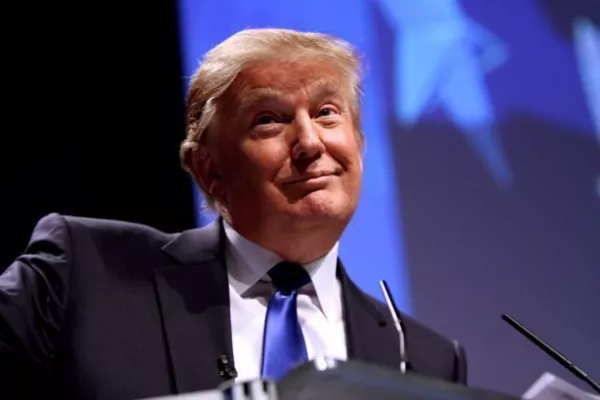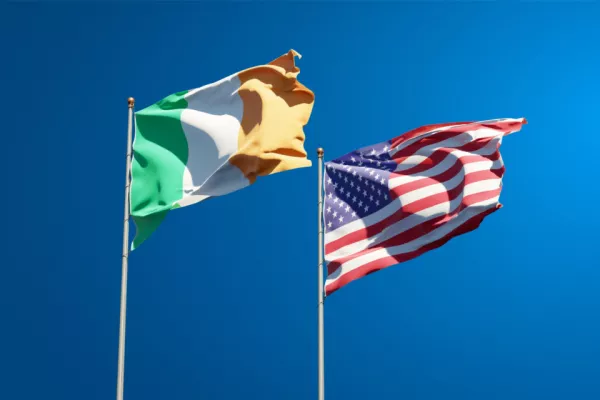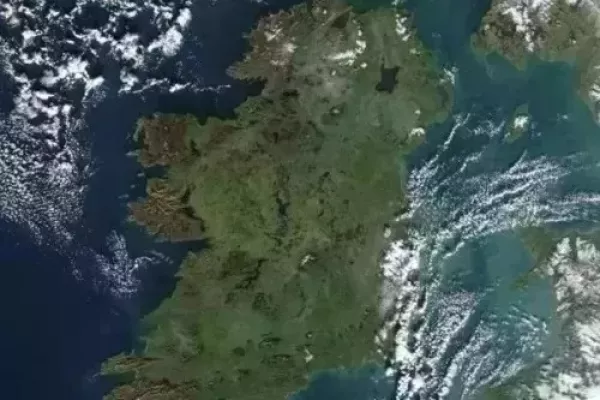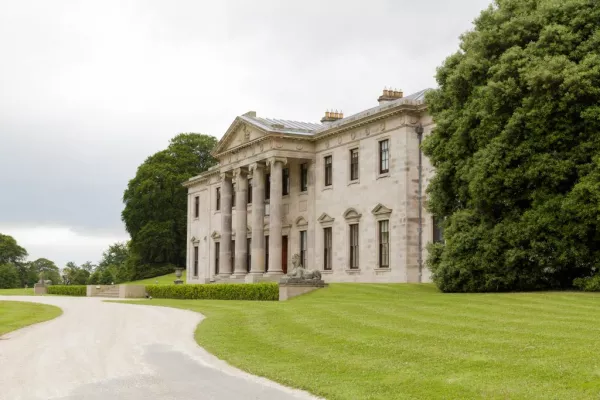When Donald Trump landed in Ireland two years ago, he was greeted by a harpist, violinist, singer and a finance minister who rolled out the red carpet after the billionaire investor saved a local golf resort.
Trump’s surprise victory in the US presidential race has been much less warmly received in Dublin. Already grappling with its greatest foreign policy threat in 50 years - the UK’s decision to exit the European Union -- Ireland is now coming to terms with Trump’s win, which threatens to undermine its status as a haven for U.S. companies in Europe.
“Whereas market fallout from the Brexit vote has been contained, Trump’s protectionist blueprint to ‘keep jobs at home’ represents an existential threat to the Celtic Tiger model,” said Donal O’Mahony, global strategist at Davy, Ireland’s largest securities firm. “Key here is Trump’s proposal to slash the US corporate tax rate.”
Less than a week after Trump’s surprise victory, Irish Finance Minister Michael Noonan dashed to the U.S. to reassure investors and companies that Ireland’s allure will remain untarnished. In common with the rest of Europe, the nation’s bond yields surged in the wake of Trump’s win, with 10-year borrowing costs rising to a six-month high.
The yield on Irish debt maturing in 2026 rose to 1.02 percent on Monday in Dublin. It’s the first time it’s breached 1 percent since February. The spread between Irish 10-year bonds and German benchmarks widened to 0.66 percentage points amid a global rout.
“As a leading base in Europe for U.S. companies, Ireland arguably has more to lose than others,” said Ryan McGrath, head of fixed-income strategy at Cantor Fitzgerald LP. “On balance, the Trump presidency is a negative for Ireland, but we caution knee-jerk conclusions to what is still in effect campaign rhetoric.”
Investors are selling bonds on speculation Trump’s election pledge to boost infrastructure spending will foster growth and inflation and trigger faster increases in U.S. interest rates. For Ireland, the plan to cut company tax to 15 percent from 35 percent is the main concern.
The 12.5 percent Irish corporate tax rate, the lowest in western Europe, made Dublin the European home of choice for U.S. technology companies. The stock of foreign investment is almost five times Ireland’s gross domestic product, making the country the second-largest recipient in the EU after Luxembourg, according to Moody’s Investors Service.
Trump is an investor in Ireland, buying the 400-acre Doonbeg Lodge and Golf Course in 2014 after a U.S. hedge fund put it into receivership. Companies like Facebook Inc. account for about a fifth of private employment in Ireland. Trump’s plan to cut U.S. tax means “a lot of companies will want to come back to the United States,” Stephen Moore, an economic adviser to the president-elect, said in a Newstalk Radio interview in Dublin.
Prime Minister’s Enda Kenny was the first European leader to speak to Trump after his victory. His government is also trying to contain the fallout from Brexit and the plunge in sterling. In a worst-case scenario, the U.K.’s exit from the EU could hurt Irish output by as much as 3.8 percent, a government report said last week.
Bloomberg Intelligence Estimates of Brexit Impact on 2018 GDP by Country
Against that backdrop, Noonan is traveling to the U.S. this week to meet investors and companies, including some already based in Ireland.
“This visit will allow me to emphasis Ireland’s attractiveness as a destination for foreign direct investment following the U.K.’s decision to exit the European Union,” said Noonan, who met Trump off his jet at Shannon airport back in 2014. “Companies invest in Ireland for a broad range of reasons, not least to access the world’s largest economic block, the European Union.”









